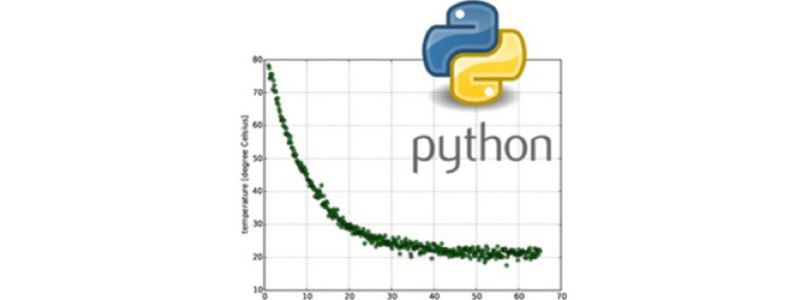computational science and engineering
Events

Advanced Python for Computational Science (Part 2)
Building on Part 1, this course covers additional aspects:
- advanced Python
- additional libraries such as scipy, pandas, and sympy
- research software engineering and testing, and
- selected numerical methods and application examples with focus on natural science and engineering problems.
Aspects (1) to (3) are covered in the beginning of the course. Part (4) is delivered at the end of the week, and can be omitted if not relevant to the participant.
Anticipated topics:
- higher order functions
- programming paradigms
- scipy, pandas, sympy
- research software engineering practices, in particular testing
- Python package installation
- interpolation, root finding, curve fitting
- optimisation, computing derivatives
- integration of functions and ordinary differential equations
Register here for part 2 (deadline is Wednesday 18 February 2026)

IMPRS UFAST Focus Course. Introduction to Programming with Python for Computational Science
Lecturer: Hans Fangohr
Hands-On exercises: Hans Fangohr, Henning Glawe and Heiko Appel
The course has been designed for scientists and engineers to teach the practical programming skills that are relevant for modern computational science. The module does not assume prior programming knowledge of participants. The module uses hands-on activities for all participants to exercise and experiment with the taught material. The material covers a wide spectrum of skills that are advantageous for scientists who need to handle data - be it from experiment or simulation – and provides a basis for self learning or directed learning of more specialized topics at a later stage.
Topics include:
- Introduction to data types in Python
- Control flow
- Name spaces
- Input/Output
- Higher order functions
- Main programming paradigms
- Important Python modules for computational science (numpy, scipy, pandas, sympy)
- Data visualization with matplotlib

Python for Computational Science part 1
Lecturer: Hans Fangohr
Python for Computational Science Part 1
The course has been designed for researchers to learn practical programming skills that are relevant for use of data processing, data science and computation in domain specific contexts. The module does not assume prior programming knowledge of participants. The module uses hands-on activities for all participants to exercise and experiment with the taught material. The course introduces skills that are advantageous for data handling - be it from experiment or simulation – and provides a basis for self learning or directed learning of more specialised topics at a later stage.
Part 2 of the course provides a deeper look into Python and introduces a wider range of libraries.
Anticipated topics:
- Introduction to Python
- Data types & structures
- Control flow
- Functions
- PEP8
- Name spaces
- File Input/Output
- Numpy
- matplotlib
- Spyder
- IPython
- Jupyter
Details here
Register here for part 1 (deadline is Sunday 26 January 2025)

Python for Computational Science part 1
Introduction to Python for Computational Science (Part 1)
The course has been designed for researchers to learn practical programming skills that are relevant for use of data processing, data science and computation in domain specific contexts. The module does not assume prior programming knowledge of participants. The module uses hands-on activities for all participants to exercise and experiment with the taught material. The course introduces skills that are advantageous for data handling - be it from experiment or simulation – and provides a basis for self learning or directed learning of more specialised topics at a later stage.
Part 2 of the course provides a deeper look into Python and introduces a wider range of libraries.
Anticipated topics:
- Introduction to Python
- Data types & structures
- Control flow
- Functions
- PEP8
- Name spaces
- File Input/Output
- Numpy
- matplotlib
- unit tests
- virtual environments
- Spyder
- IPython
- Jupyter
Register here for part 1 (deadline is Wednesday 4 February 2026)

Python for Computational Science part 2
Lecturer: Hans Fangohr
Building on Part 1, this course covers additional aspects:
- advanced Python (including list comprehension, names and side effects, functional programming, object orientation, performance)
- additional libraries such as scipy, pandas, and sympy
- research software engineering and testing, and
- selected numerical methods and application examples with focus on natural science and engineering problems.
Aspects (1) to (3) are covered in the beginning of the course. Part (4) is delivered at the end of the week, and can be omitted if not relevant to the participant.
Anticipated topics:
- Higher order functions
- programming paradigms
- scipy, pandas, sympy
- Research software engineering practices, in particular testing
- Python package installation
- interpolation, root finding, curve fitting
- Optimisation, computing derivatives
- Integration of ordinary differential equations
Details here
Register here for part 1 (deadline is Sunday 26 January 2025)

Sicherheitsrelevanter KI-Einsatz und Verantwortung von Informatiker:innen
Mit der zunehmenden Bedeutung der Digitalisierung und insbesondere der Verbreitung von Künstlicher Intelligenz (KI) wachsen die Anforderungen an die verantwortungsvolle Entwicklung solcher Systeme. Informatikerinnen und Informatiker sind hier besonders in der Pflicht. Die EU hat mit dem AI Act das weltweit erste Gesetz zum verantwortungsvollen Einsatz von KI erlassen und dafür sowohl Lob als auch Kritik geerntet. Im Kern der KI-Verordnung werden vier Risikoklassen definiert und zusätzlich Regeln für den Einsatz von sogenannten General Purpose AI (GPAI) models definiert, wie sie etwa in großen Sprachmodellen wie ChatGPT, Gemini oder spezialisierten KI-Modellen etwa zur Bilderzeugung wie Midjourney oder DALL-E eingesetzt werden. Der Vortrag wird der Frage nachgehen, wie berufsethische Grundsätze für den verantwortungsvollen Umgang mit Hochrisiko-Anwendungen und sicherheitskritischen Systemen, Dual-Use und militärischen Einsatzszenarien aussehen könnten. An einigen Fallbeispielen (Drohnen, KI-Einsatz bei Cyberangriffen, Online-Marketing) wird gezeigt, wie schwierig die Abgrenzung zwischen den verschiedenen Risikoklassen ist, wie sie vom AI Act definiert werden.
Vortrag: Prof. Dr. Hannes Federrath, Universität Hamburg, Fachbereich Informatik
Der Eintritt zur Veranstaltung ist frei. Für die Teilnahme vor Ort ist eine Anmeldung erforderlich unter https://cloud.adwhh.de/index.php/apps/forms/s/EZ6xAa9PEfGLgGnmLLsJSRLG. Sie erhalten von uns eine Bestätigung.

Universität Hamburg
Adeline Scharfenberg

Universität Hamburg
Adeline Scharfenberg

Universität Hamburg
Adeline Scharfenberg